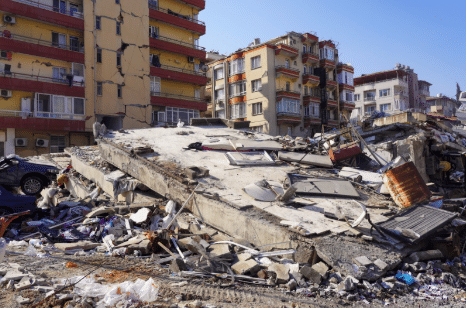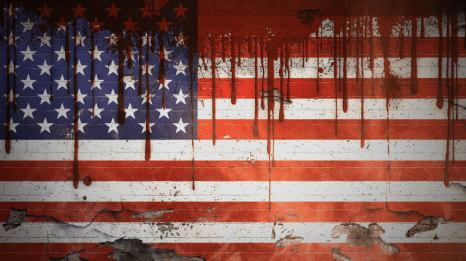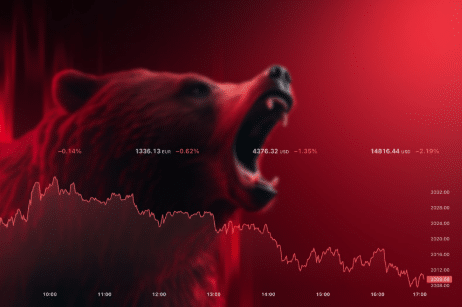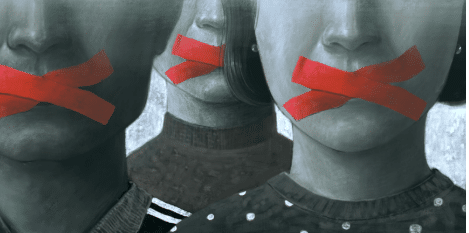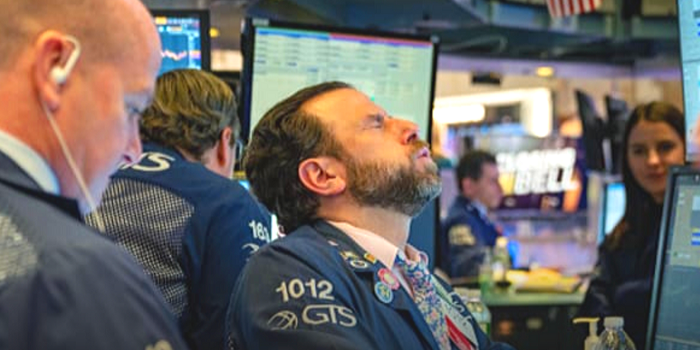
The Dow Just Suffered Its Worst Drop Ever Smashing Through Records Set Earlier This Month
The Dow Jones is down dramatically on coronavirus and scares of a deflationary cycle hitting the markets.
Aside from the now 22 US Deaths from coronavirus, the other culprit is a breakdown of talks between Russia and Saudi Arabia. The Saudis ended talks with an announcement yesterday saying they will increase oil production to drop the price in "scorch the earth fashion" as one analyst at CNBC put it.
The oil price suffered a catastrophic loss of -25% from Friday's close.
Now is the time to check your retirement accounts and bank statements to make sure that you are not bleeding money!
The Dow Jones industrial average suffered its worst single-day point drop ever — smashing through records set earlier this month — as an oil price war rattled investors who have already been panicked over the coronavirus epidemic.
The blue-chip index neared bear territory amid mounting fears about a global recession, plunging a record-breaking 2,013.76 points, or 7.8 percent, to close at 23,851.02. The Nasdaq dropped 7.3 percent to 7,950.68.
The S&P 500 index lost 7.6 percent to close at 2,746.56 — its worst day since December 2008 — after diving 7 percent in the opening minutes of the trading session, triggering a New York Stock Exchange “circuit breaker” that had halted trading for 15 minutes.
Monday marked the first time the trading curb took effect since the current thresholds were implemented in 2013 to avoid a repeat of 1987’s “Black Monday” crash.
The price of West Texas Intermediate crude oil tumbled more than 25 percent to $30.92 a barrel on Monday after Russia over the weekend rejected a proposal from OPEC to cut back on global oil production by as much as 1.5 million barrels a day.
Russia’s vote was seen as an economic attack on Saudi Arabia, which retaliated by increasing its own production and causing the price of oil to nosedive.
“We are afraid this could go on for quite a while yet,” said Jan Stuart, a global energy economist at Cornerstone Macro. “After this kind of breakup, the Saudis seem intent on punishing [Russian President Vladimir] Putin by driving down prices and grabbing market share. Putin seems intent on holding firm. How do you recover?”
Some industry experts also see the squeeze on the US energy sector as an intentional ploy by Putin.
“He saw this coming hundreds of miles away,” said one energy trader of the Russian leader. “He holds sway over most of the Middle East now and doesn’t need oil prices to be high, it’s the Saudis that need that, US oil will just be caught in the crossfire and he couldn’t be happier. He’s playing chess and everyone else is playing checkers.”
US shale producers suffered, with shares in Diamondback Energy tanking 45 percent and Whiting Petroleum stock plunging nearly 40 percent. Shares in Vanguard’s US Energy ETF were down 19.8 percent on the day, falling $11.13 to $45.01.
According to the Dallas Fed, US shale oil producers need oil prices to stay somewhere between $48 to $54 per barrel to turn a profit. Should Russia and the Saudis continue their game of chicken, US oil companies could become casualties.
The Saudis also felt the pinch, with shares in state-owned oil producer Saudi Aramco falling 5.5 percent on the day.
The S&P 500, meanwhile, is now about 18 percent below its all-time high set on Feb. 19. A bear market is confirmed when stocks reach 20 percent below record peak.
“It’s a perfect storm,” said Chris Zaccarelli, chief investment officer at Independent Advisor Alliance in Charlotte, North Carolina. “You’ve got a lot of uncertainty in terms of how far the virus will spread in the US. You layer onto this the oil price cut.”
“Today is all about oil being the straw that broke the camel’s back,” Zaccarelli added.Peter Cardillo, chief market economist at Spartan Capital Securities in New York agreed.
“There’s a lot of fear in the market and if the price of oil continues to move lower it’s an indication that a global recession is not far away,” Cardillo said.
The CBOE Volatility index, a gauge of investor anxiety, touched its highest level since December 2008.
Benchmark 10-year US Treasury yields briefly sank to 0.318 percent, a record low.
The financial market is crumbling and EVERYONE will be affected. Only those who know what's going on and PREPARE will survive... dare we say thrive. Our 7 Simple Action Items to Protect Your Bank Account will give you the tools you need to make informed decisions to protect yourself and the ones you love.




